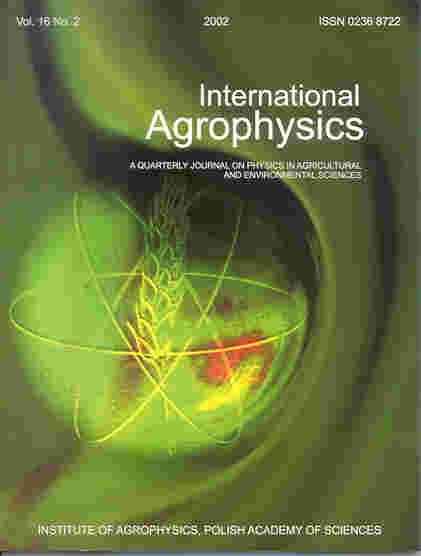|
|
|

|
|
| International Agrophysics |
| publisher: | Institute of Agrophysics
Polish Academy of Sciences
Lublin, Poland |
| ISSN: |
0236-8722 |
vol. 15, nr. 4 (2001)
|
|
|
previous paper back to paper's list next paper
|
|
|
Radioactive tracer techniques used in solute transport studies in a field soil
|
|
| (get PDF ) )
|
|
|
Lichner L.
|
|
|
Institute of Hydrology, Slovak Academy of Sciences, Račianska 75, P.O. Box 94, 838 11 Bratislava, Slovak Republic |
|
|
vol. 15 (2001), nr. 4,
pp. 255-259
|
|
|
abstract
Radioactive tracer techniques were used for in-situ measurements of the solute velocity, longitudinal dispersion coefficient, and bypassing ratio, as well as for estimation of the impact of land-use change on area-averaged nitrate relative concentration profiles. It was found that the impact of land-use on nitrate relative concentration profiles can be studied for small and medium cumulative infiltration only. The mean and dominant velocities obtained from breakthrough curves were significantly higher than those obtained from concentration profiles, but a good agreement of maximal velocities was found. From the results of the bypassing ratio measurement it can be seen that the warm and rainless second half of April 1993 (similar situation repeated in April 2000) resulted in a preferential flow as high in the barley field as that in the untilled soil with well-developed macropore systems. The rain resulting in the macropore flow can appear 24-times on average in south-western Slovakia during the vegetation season. Such rain, combined with the high value of the bypassing ratio can be a cause in the drop of fertilization efficiency, as well as in the shallow groundwater pollution in the Danubian Lowland.
|
|
keywords
tracer techniques, solute velocity, longitudinal dispersion coefficient, bypassing ratio
|
|
|
|
|
|
|